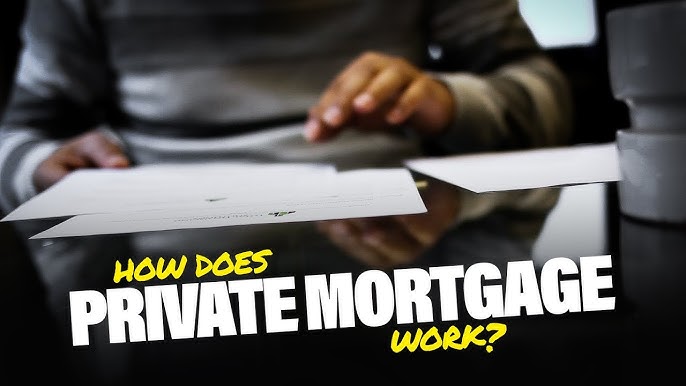Exploring Mortgage Lending: Vital Information for Making Educated Choices
In today's real estate market, recognizing mortgage lending is vital for prospective purchasers. Various mortgage kinds, such as fixed-rate and adjustable-rate, offer distinct benefits and challenges. Rate of interest prices, loan application procedures, and closing expenses additionally play considerable roles in shaping the home-buying experience. With numerous aspects to evaluate, traversing this landscape can appear frightening. Yet, there are means to simplify the procedure and make informed decisions.
Understanding Different Kinds Of Home Mortgages
What are the different kinds of mortgages readily available to buyers? Buyers can pick from a number of mortgage options to fit their economic circumstances and goals. Fixed-rate home loans are prominent for their stability, offering a regular rates of interest and regular monthly settlement throughout the loan term. Alternatively, variable-rate mortgages (ARMs) start with a lower rate of interest that may rise and fall after a preliminary period, possibly raising overall expenses. Another option is the FHA loan, made for low-to-moderate-income purchasers, which requires a reduced deposit and has a lot more lenient credit score needs. VA lendings, offered to experts and active military participants, provide desirable terms with no deposit and affordable rates. In addition, USDA car loans sustain rural property buyers with low-to-moderate incomes, providing 100% funding in designated areas. Comprehending these mortgage kinds allows property buyers to make educated decisions based upon their one-of-a-kind monetary conditions.
The Relevance of Rate Of Interest
Rates of interest play an essential function in the mortgage lending landscape, greatly influencing the affordability of homeownership. A reduced passion rate can substantially reduce month-to-month mortgage settlements, making it less complicated for consumers to handle their funds. On the other hand, greater rates can bring about increased prices over the life of the funding, potentially pushing homeownership out of reach for many individuals.Additionally, rates of interest are commonly tied to broader financial indications, such as inflation and work prices, which can rise and fall based on market problems. This relationship indicates that prospective homeowners must remain informed regarding present price patterns to make enlightened decisions.Moreover, the kind of mortgage picked can also influence how rate of interest are applied, with fixed-rate mortgages offering stability and variable-rate mortgages presenting possible irregularity. Recognizing these dynamics is vital for customers wanting to browse the intricacies of mortgage lending successfully.
The Mortgage Application Process
Guiding with the mortgage application process can appear intimidating for numerous prospective house owners. The trip normally starts with gathering required paperwork, such as income declarations, tax returns, and credit rating. Lenders analyze this information to evaluate the candidate's economic security and creditworthiness.Once the paperwork is gathered, individuals submit a formal application, where they information individual and economic info. This phase is crucial, as it allows lending institutions to establish financing eligibility and terms. Following the entry, underwriting happens, during which lenders conduct a detailed review of the application and supporting documents.After underwriting, the lending institution may request extra info or clarification. If accepted, the candidate obtains a funding offer, which lays out the mortgage terms. Upon approval, closing treatments begin, leading to the finalization of the funding and the procurement of the property. Comprehending this process can equip potential home owners to browse it with better confidence.
Trick Terms Every Buyer Must Know
Navigating the globe of mortgage lending calls for experience with numerous crucial terms that can substantially influence the homebuying experience. Recognizing these terms aids buyers navigate their options and make informed decisions.One important term is "principal," which describes the initial amount obtained. Closely related is "rate of interest," the cost charged by lending institutions for obtaining cash, commonly revealed as an interest rate (APR) "Escrow" is an additional significant principle, where funds are held by a 3rd party to cover property taxes and insurance.Buyers must also understand "deposit," the in advance quantity paid in the direction of the home purchase, and "equity," the difference between the home's market price and the remaining mortgage equilibrium. "pre-approval" indicates that a lender has analyzed a buyer's economic scenario and established how much they can borrow, enhancing the buying process. Knowledge with these terms equips buyers in their trip.
Tips for Improving Your Credit History Score
Improving one's credit score is necessary for securing favorable mortgage terms. Key actions include paying bills on schedule, minimizing credit scores utilization, and inspecting credit score records regularly - Private Mortgage Lenders Savannah GA. These actions can significantly improve an individual's financial profile and increase their opportunities of obtaining a home loan

Pay Bills In A Timely Manner
Paying costs on schedule stands as one of one of the most effective strategies for enhancing moved here a debt score. Timely payments demonstrate financial responsibility and integrity to lenders, significantly influencing credit report assessments. Late payments can bring about negative marks on debt reports, which may remain for numerous years, detrimentally affecting loaning capacities. Developing a regular routine for costs settlements can assist keep preparation; making use of tips or automated payments is an effective method. Individuals should prioritize essential expenses, such as credit report cards, energies, and home loans, to safeguard their creditworthiness. Regularly monitoring credit history records can likewise aid catch any discrepancies or missed settlements, allowing for prompt action. Ultimately, consistent expense repayment is essential for promoting a solid credit scores account.
Minimize Credit Scores Application
Lowering credit history usage is a necessary step in enhancing one's credit history. Credit scores usage refers to the ratio of charge card equilibriums to their restrictions, and it considerably influences credit report. Experts recommend preserving an utilization price below 30%, ideally around 10%. To attain this, individuals can pay for existing equilibriums or increase credit report restrictions, provided they do not boost investing. Additionally, individuals should prevent closing old credit score accounts, as this can accidentally increase utilization proportions by reducing complete offered credit scores. Regularly monitoring costs habits and making consistent payments can further help in managing debt usage effectively. By carrying out these approaches, people can boost their credit history and boost their eligibility for beneficial mortgage lending choices.
Inspect Credit Information Frequently
While many might overlook their credit records, frequently inspecting these records is crucial for maintaining a healthy and balanced credit report rating. Credit reports consist of vital details about an individual's credit report, including repayment documents, exceptional financial obligations, and credit scores inquiries. By assessing these records, consumers can determine any errors or deceitful tasks, which can negatively influence their ratings. It is suggested to check debt reports at the very least yearly, as this allows people to correct mistakes and take aggressive actions to improve their creditworthiness. In addition, monitoring credit rating reports can provide understanding into aspects influencing ball game, enabling individuals to make informed monetary decisions. Ultimately, constant alertness over credit rating reports promotes monetary health and enhances the likelihood of safeguarding positive mortgage lending terms.
Navigating Closing Costs and Costs
Understanding closing expenses and fees is vital for anybody going into the mortgage procedure. Each element, from loan provider fees to third-party costs, can significantly affect the general expense of protecting a loan. By comparing these prices and discussing when feasible, borrowers can better manage their economic commitments.
Recognizing Closing Price Components
Managing the complexities of closing expenses can be intimidating for homebuyers. Closing costs are comprised of various components, imp source normally consisting of financing origination charges, evaluation costs, title insurance coverage, and inspection expenses. These charges vary by lending institution and can rise and fall based on the home area and car loan kind. Additionally, homeowners may run into pre paid prices like residential property tax obligations and house owners insurance policy that are collected at closing (Private Mortgage Lenders Savannah GA). It is crucial for purchasers to recognize these components to precisely approximate the overall quantity needed throughout the transaction. By breaking down each element, homebuyers can make informed monetary choices, guaranteeing they are well-prepared for the closing process and minimizing any kind of surprises that might occur at the final phases of securing their mortgage
Contrasting Lending Institution Fees
When assessing mortgage alternatives, customers ought to carefully compare lending institution fees to guarantee they are making an informed decision. Lender costs can considerably influence the total cost of a home loan, including application fees, car loan source costs, and underwriting charges. Each loan provider may have different frameworks and amounts for these fees, which can bring about significant differences in total closing expenses. It is important for borrowers to ask for a Loan Price quote from multiple loan providers, as this record describes all linked charges in a standard style. By examining these price quotes, customers can identify which lending institution provides the most affordable terms. Inevitably, a complete comparison of loan provider costs will certainly aid borrowers select the most effective mortgage option that lines up with their monetary goals.
Bargaining Closing Expenses
Debtors typically ignore the possible to negotiate closing costs, which can better influence the affordability of a home mortgage. Closing prices usually include different charges such as assessment, title insurance policy, and lawyer charges, which can accumulate substantially. Understanding these prices is essential, as they can range loan providers. By getting detailed estimates, consumers can identify areas for arrangement. It is suggested to go over costs directly with the lender, as some charges might be adaptable. In addition, borrowers can compare deals from multiple lending institutions to utilize better terms. Involving a genuine estate agent or a home loan broker can further enhance the arrangement procedure, guaranteeing that customers secure the most favorable closing costs and overall mortgage terms.

Regularly Asked Concerns
What Papers Are Required for a Home Loan Application?
The existing question addresses the necessary paperwork for a mortgage application. Normally, candidates must offer identification, income verification, credit report, possession declarations, and details pertaining to the building to ensure a detailed assessment by loan providers.
How Does My Employment History Affect Mortgage Authorization?
Employment history considerably influences mortgage approval, as lending institutions basics assess work security and income uniformity. A solid, continual job record enhances creditworthiness, while regular work modifications may raise problems concerning reliability and financial security.
Can I Get a Home Mortgage With Student Loans?
The person's ability to secure a home loan with student loans relies on their overall debt-to-income proportion and credit rating. Lenders analyze these variables, figuring out whether the candidate can handle extra monetary responsibilities properly.
What Is the Distinction Between Pre-Qualification and Pre-Approval?
The distinction in between pre-qualification and pre-approval hinge on their deepness. Private Mortgage Lenders Savannah GA. Pre-qualification provides a basic quote of borrowing potential based on self-reported details, while pre-approval entails a thorough monetary evaluation and credit history check by the loan provider

The length of time Does It Take to Close on a Mortgage?
The time called for to close on a mortgage commonly ranges from 30 to 45 days. Factors such as loan provider efficiency, debtor documentation completeness, and property evaluation can affect this timeline significantly, creating variations in the closing procedure.